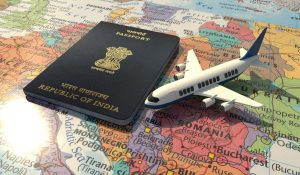
In a major development, Indian investigators have arrested four passport officials in West Bengal for issuing passports to Nepalese citizens on forged documents. The arrests were made by the Central Bureau of Investigation (CBI), which is India’s premier anti-corruption agency.
The racket
The CBI has alleged that the arrested officials were part of a racket that had processed 60 passport applications of Nepalese citizens based on forged Indian identity cards showing them as locals in two months in exchange for hefty bribes.
According to the CBI, the agents worked together with the passport department officials to handle tasks related to police verification and postal services.
After completing the paperwork, agents bribed the mail carrier to deliver passports directly to them. They avoided sending them to the fake address on the application. The agents then gave the passports to applicants in person and distributed payments to officials in Gangtok, Siliguri, and Kolkata.
The arrests
Four passport officials got arrested, including senior assistants Uttam Kumar, Debasis Bhattacharjee, Nishit Baran Saha, and stenographer Manish Kumar Gupta.
The CBI had previously taken into custody two Regional Passport Office employees and four middlemen linked to this case.
Implications
The arrest of four officials in West Bengal for issuing passports to Nepalese citizens on forged documents is a grave issue. It highlights worries about India’s passport security and the potential misuse of fake passports for unlawful purposes.
The CBI investigation is ongoing and it is possible that more arrests may be made in the future. It is also important to note that the investigation is still at an early stage and it is too early to say what the full extent of the racket is.
What can be done to prevent such incidents from happening in the future?
There are a number of things that can be done to prevent such incidents from happening in the future. These include:
- Strengthening the passport system by making it more difficult to forge passports.
- Increasing the number of passport officials and improving their training.
- Raising awareness among passport officials about the dangers of corruption.
- Conducting regular audits of passport offices.
- Ensuring that there is strict punishment for passport officials who are found to be involved in corruption.
It is also important for the public to be vigilant and to report any suspicious activity to the authorities.
